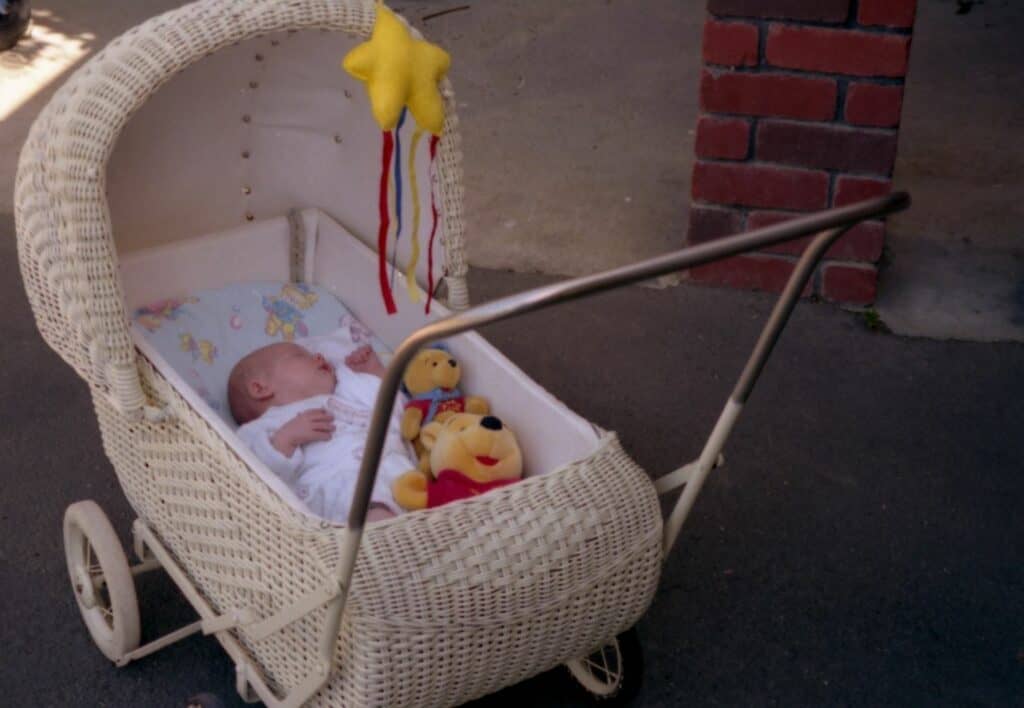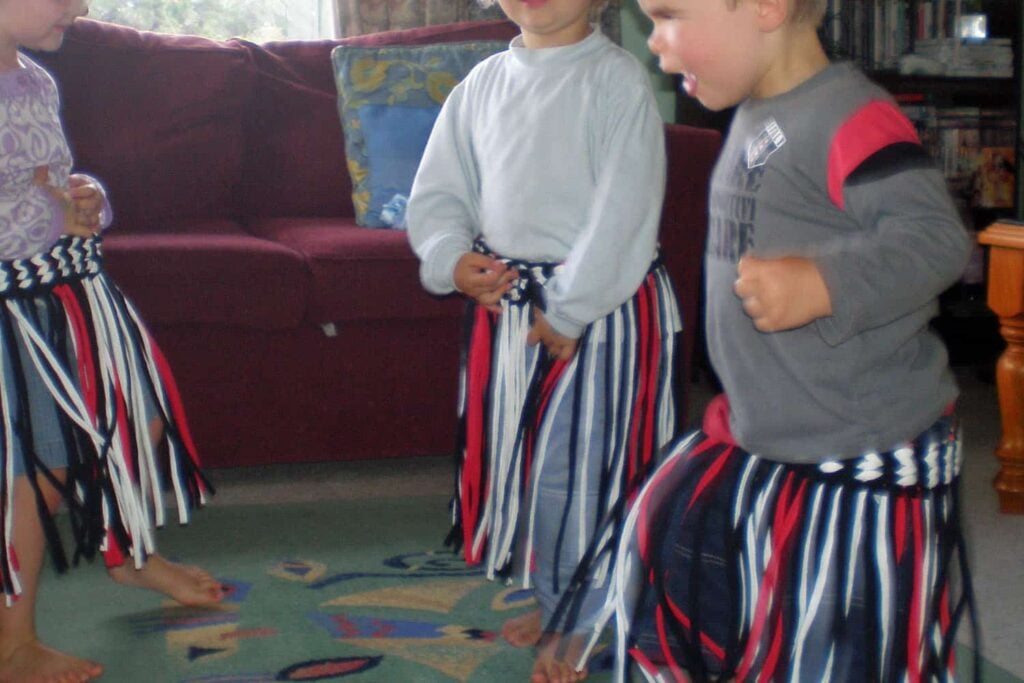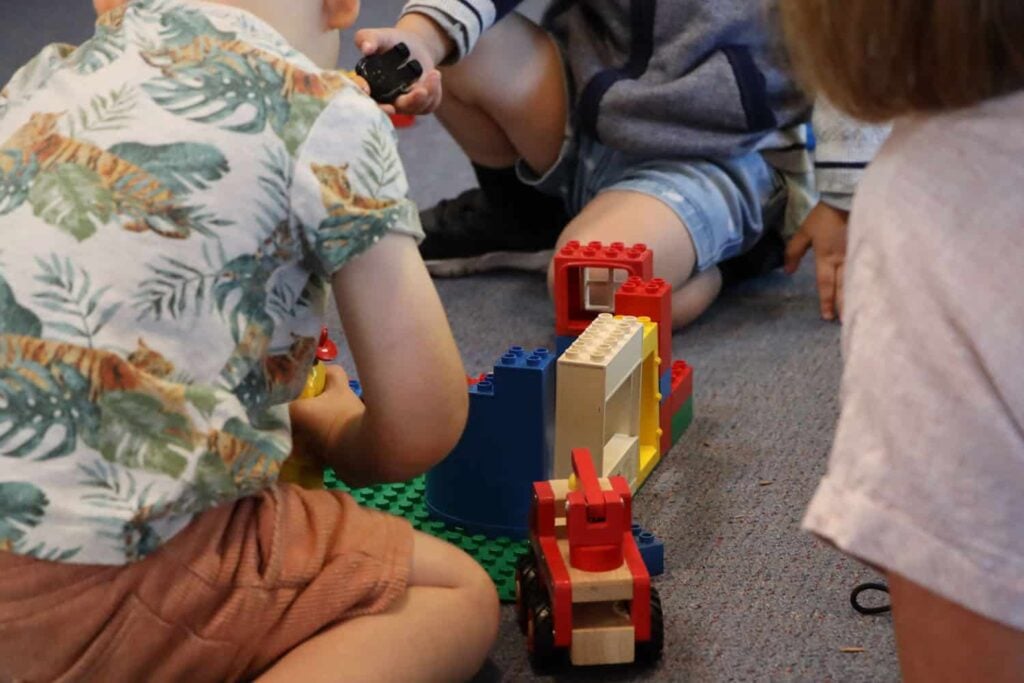Adam Buckingham obituary.
February 4, 2015.
By Dr Sarah Alexander.
On a list of people who have made a significant contribution to early childhood education over the past 10 years, Adam Buckingham would be within the top 10.
After obtaining a B.Ed. degree from AUT, Adam worked for a while at Lincoln North Kindergarten and enjoyed working as a relieving teacher for the Auckland Kindergarten Association; and while in that role he went on to become a change leader within the sector.
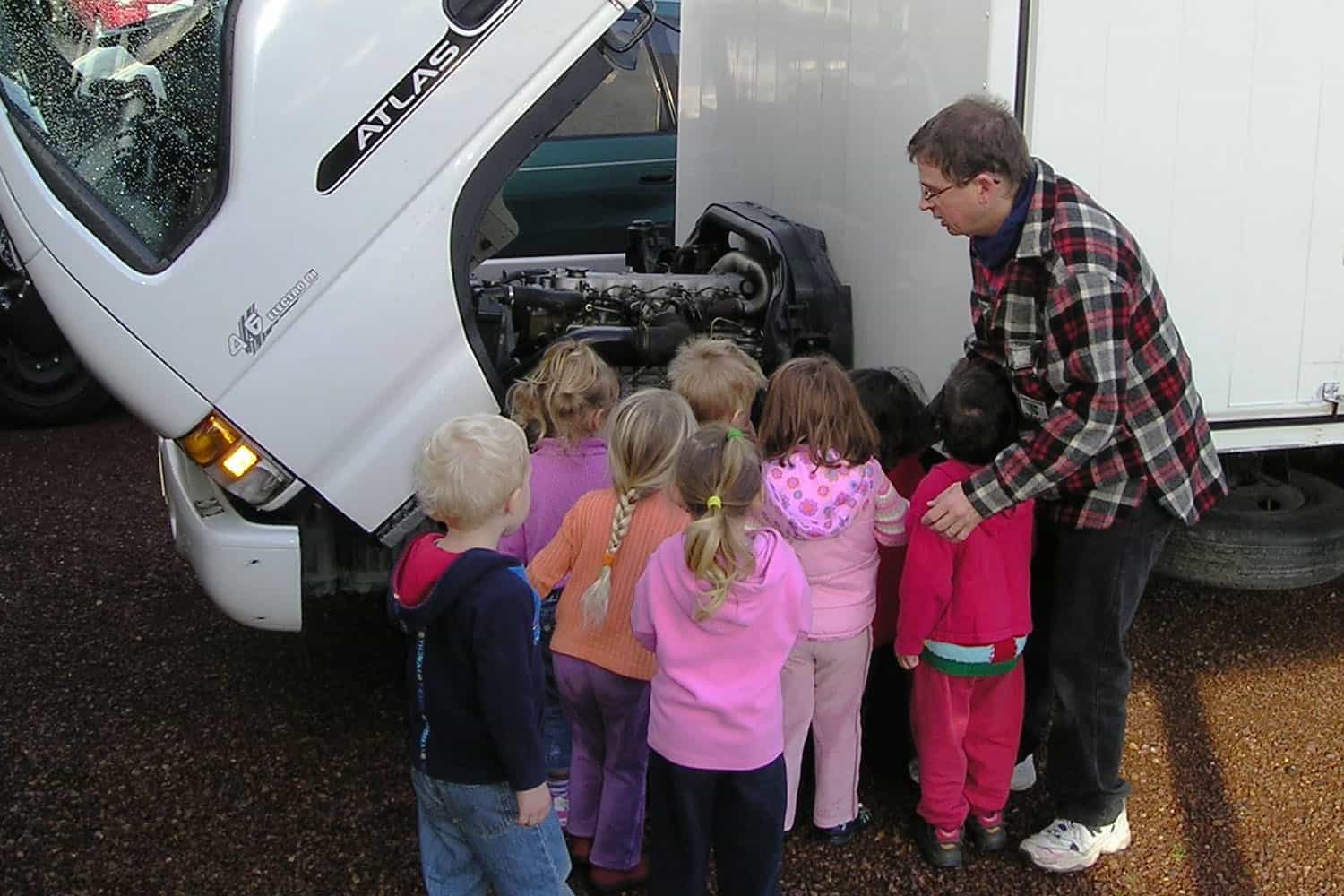
A truck driver in his earlier days, Adam found “love” working in early childhood education. His warm smile, boundless energy, and keenness to talk about his passion with anyone will be remembered. He was a strong advocate of early childhood education and he strived to convince others that involving men in working with children was a great step forward for children and for the sector. He loved to create and share his ideas for building and making play equipment out of trash.
For his work in environmental education in the community, Environment Minister Amy Adams presented Adam with a Green Ribbon Award at a function at Parliament in 2013. This is one of New Zealand’s top environmental awards.
Over the past decade he has enthusiastically given workshops around the country and presentations at overseas conferences, often without any financial support. He helped form a New Zealand association of men working in early education (EC-Menz) in 2008.
Adam died on Sunday 1 February 2015 at the age of 49 after a brief and rapid struggle with cancer, leaving behind Joanne and two young children, Clay and Ellie. Friends and colleagues in the early childhood sector while mourning the loss of Adam remember his immense contribution to early childhood education and acknowledge there was still so much more he wanted to do and achieve.
My memory of Adam centres on the very unique person he was. Never afraid to step outside of his comfort zone and write about early childhood issues, Adam unwaveringly accepted requests from me to talk to journalists or be interviewed for TV, and always getting personally involved in something that needed to be done. For him it wasn’t just about ‘getting a job done’, life was about communication and caring and working to make a difference while not ruffling any feathers. Sadly, as is the case in the early childhood profession, contributions (especially volunteer) that are made often go unrecognised and unrewarded. Motivationally it can be hard to keep going, but keep going he did and I believe his legacy will continue.
My first contact with Adam was back in 2005 when he sent me a brief email with a copy attached of an essay he had written about men working with children. It made me reflect about how little real progress had been made in the sector to address sexism and the issues facing men in ECE since the release of my research study on the experiences of male childcare centre and kindergarten teachers in 1997. I emailed Adam back and chattered with him about this. The result was the publication in 2006 of a small collection of men’s stories, of which Adam’s was one. This then led to a whole chain of events with Adam participating, speaking, and lobbying for the new cause although he had no prior experience and was then only a newly qualified ECE teacher.
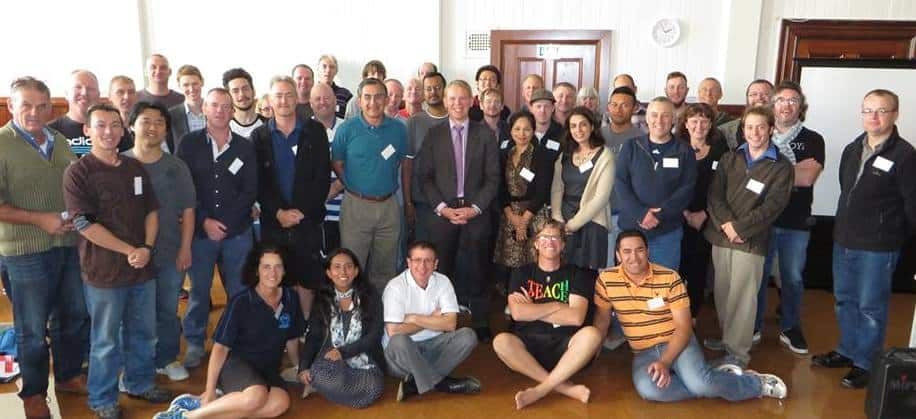
Adam’s story is reproduced below. He wrote this story for the collection as mentioned above that was published in 2006 (see reference below)
A TVNZ documentary on the Sunday programme inspired by this publication included an interview with Adam and footage of him working with parents and children. It was amazingly good, being very down-to-earth, heart-warming and politically hard-hitting. At the end of this page is a screen shot of Adam, click on the screen shot to view the documentary. Thank you to TVNZ and producer Jane Skinner for making this documentary available to us.
Here is Adam’s Story.
“My Passion is Teaching” by Adam Buckingham
“Men build bridges, send people to the moon, and perform delicate eye surgery. Yet rarely mentioned, but equally as important, men also care for young children.
Fathers, brothers, uncles and grandfathers have been doing it for generations” (B.G. Nelson, 1982, “Real Men…” Men in Child Care. Minneapolis). And as early childhood teachers, men are now doing all that women in teaching and early child care do – and full-time as a career.
I am passionate about teaching children and I enjoy helping children to extend their knowledge. Being a teacher gives me the opportunity to help children understand new meanings, concepts and facts. I provide a male influence for children, a good proportion of children in one parent families have no man closely involved in their lives. I have experienced evidence of this a number of times, and on one occasion a child said to their mother “this is my new dad”.
I reflect on these moments and it gives me an incentive to work in a highly gendered profession. Parents and children seem surprised when they realise that I am an early childhood teacher, and not another parent or the boss’s husband.
One parent asked “is it for real, a man working here?” Some mothers will stand and watch me while I am working with the children, checking me out and thinking“is he okay? Can I trust him?”
As a man working in a profession that must be a nurturing one, through my presence and actions I challenge the images of men as aggressive, powerful, unemotional and one-dimensional. Children ask me to be involved in their play and talk to me as though I am one of them. I notice that they closely watch my body language and actions. Children new to the centre often watch me comfort another child, until they get used to the sight of a man nurturing children.
I have experienced times when colleagues and parents focus on my masculinity, rather than my teaching abilities. There have been times when my professionalism has been questioned; this challenges my self-esteem and I question my choice of career.
A good support network of family, friends and peers has helped me to maintain my self-esteem and provide me with honest feedback. This helps me to keep things in perspective. I am a member of the NZEI, teacher’s union. I attend professional development meetings, and this provides a support network outside my workplace. Most parents are supportive and encouraging; however I am aware that some children have not been enrolled at the centre because a man works there.
When my female colleagues eye up a dad who comes into the centre and talk about him, this is okay. But if I talked about a mother this way, what would you think? Being a man in a woman’s world is very isolating at times, such as going to conferences when all the teachers (women) stand and talk and there is no other man around for me to talk to.
I found my teacher training to be very female oriented, with female lecturers saying “hello girls”. I came across a few negative attitudes towards the competency of men as early childhood teachers and some classmates questioned my presence.
I could have been working full-time but instead I chose to put aside three years to train to become an early childhood teacher; the cost of which added up to over $100,000 (including fees and my loss of wages). But for me it is not the money and it is not just a job, it is a career and a passion to empower children as they learn and grow. So I find it strange when my commitment is questioned simply on the basis of being a man and not a woman.
Children require warm, loving and caring relationships to provide the optimal conditions for growth and learning. Maslow’s hierarchy of needs theory states that children’s basic needs of food and water, shelter, safety, love, belongingness and self-esteem must be met before they can begin to learn. Children need emotional warmth, care, respect and privacy. This includes privacy for going to the toilet and having clothes changed.
I don’t change children’s nappies at work. I have decided that it’s not worth the risk of being that close to a child in a separate area. When I am helping a child to change his/her clothing I take the child out into an open area and alert another teacher to what I am doing.
When I am looking for a job I look at the layout of the centre. Is it open plan and will it be safe for me to work there? I have to ask myself these questions; it is a sad fact of life. My need to be above suspicion overrides the children’s needs for privacy.
In an ideal world the children’s needs should come before the concerns that are created by teachers having physical contact with children. How should teachers develop caring relationships with nurturing interactions that involve touch? Adults touch to provide comfort and support, to acknowledge achievement, to give direction and instruction, and to provide safety. The teacher needs to question if the action of touch is given to meet the needs of the child or him/herself.
A male teacher can have advantages as parents may see them as a friend in their child’s education rather than as a ‘professional – expert’. Parents will chat with me about all sorts of things. They more formally ask other teachers (women) about their child’s day or progress in learning.
Being a male teacher provides parents with a greater choice of staff to approach and talk to. A man can build a rapport with fathers who may otherwise find it hard to relate to women teachers or feel self-conscious in a female environment. I can provide friendship and support for fathers, especially those who are single parents. Discussions with fathers about sport, cars and their work can build relationships and lead to talking about their child. I provide fathers with an opportunity to talk to another man about their child.
As a man I can bring a different perspective or way of looking at problems and issues to a centre. I can expose sexism in a centre’s environment, such as a lack of activities to challenge boys. A man can bring a balance to the centre and to the children’s learning.
I enrich the curriculum by incorporating more activities in carpentry and other masculine trades. I acquire good resources from contacts in different trades within the community; and my handyman skills are often utilised. I have made resources for the children to explore everyday objects at their level, which would otherwise be beyond their reach. I have made an activity centre that contains household items such as hinges, taps and switches for children to explore with their hands and senses. Another one I made contains car parts with switches for the children to turn the lights on and off, and I have also made a ‘bus’.
As a male teacher I am more physically active and boisterous, and more involved in outdoor play. I run around outside with the children and they like to play touch rugby with me. This promotes their gross motor skills, but also causes more accidents and injuries. Other staff can find this annoying and think I get the children too excited so they lose concentration for other activities. But the children, boys and girls, love it and we all need the exercise along with the fun!
I want to encourage more men into teaching. I do this by being on the Auckland University of Technology web page and giving presentations to students. I have found the biggest barrier to be financial support for men to train.
Reference
Alexander, S.E, Cablk, L., Buckingham, A., Butler, D., and Ballantyne, R. (2006). Men at Work: Sexism in Early Childhood Education. Wellington, NZ: ChildForum Network.
Comments previously added
It was with shock that I learnt of the passing of Adam. Over the years Adam and I have attended many conferences and he would always come up to me and talk about his latest ideas and ask for my thoughts and opinions. He was full of the love of life and my heart felt thoughts and wishes go out to his children and wife. Early childhood is lesser for the passing of your Dad and sweetheart and I for one will honour him by keeping his questions to me in my head for my continuing pathway within ECE. (David Spraggs 2015-02-10)
I had only met Adam once through a professional development course. His passion and love for his work was so obvious. Still to this day his work inspires and drives me to work harder. An epic tragedy for a Kiwi Legend. (Roger Bruere 2015-02-14)


